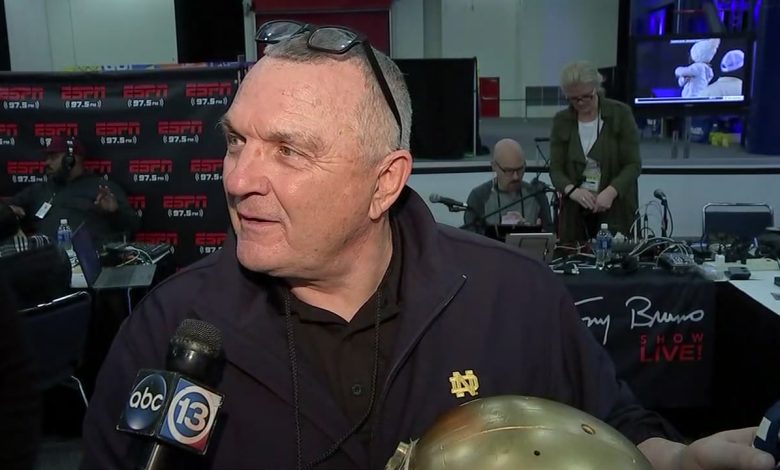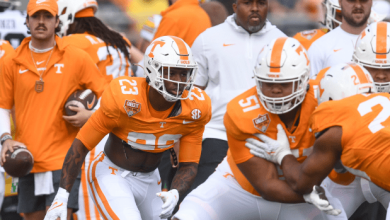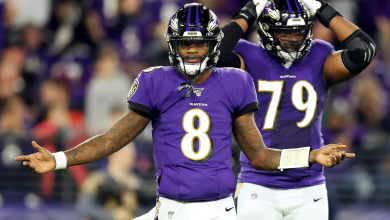Notre Dame legend Rudy Ruettiger disappointed in the direction college football has taken

Rudy Ruettiger, the name synonymous with determination, grit, and the underdog spirit, rose to national prominence in the 1990s after his remarkable journey to play for the University of Notre Dame football team. His story, immortalized in the 1993 film Rudy, has inspired countless individuals, showing that hard work and persistence could overcome the most seemingly insurmountable obstacles. Yet, despite the inspiring nature of his personal journey, Rudy has not been immune to the growing concerns surrounding the sport he once loved and dreamed of playing. Over the years, he has expressed deep disappointment in the direction college football has taken, particularly the commercialization of the sport, the decline of the student-athlete model, and the lack of focus on the core values that once defined the game.
The Commercialization of College Football
When Rudy first suited up for the Notre Dame Fighting Irish, it was still a time when college football was viewed primarily as a college sport — one where students played for the love of the game and the pride of representing their schools. The financial stakes were not nearly as high, and the influence of big money was largely absent. Today, however, college football has become a multi-billion-dollar industry. Television networks, corporate sponsors, and merchandise sales have transformed the sport into an economic powerhouse, leaving Rudy and others concerned that the essence of what college football once represented has been lost in the pursuit of money.
The era of “amateurism” in college sports is one that Rudy remembers fondly. As a walk-on player, his passion for the game and his dream of playing for Notre Dame were his driving forces, not the promise of endorsement deals or large salaries. In a modern landscape where players are now compensated through the NIL (Name, Image, and Likeness) deals, Rudy sees a shift in the priorities of players. While NIL rights have given student-athletes more freedom and financial opportunities, they have also led to a situation where many players are no longer fully focused on the team or the school, but instead on their personal brand and financial gains. This, according to Rudy, detracts from the pure love of the game and the values that college football once upheld.
Moreover, the impact of massive television contracts and the rise of corporate sponsorships has led to an over-commercialized sport. Schools, conferences, and media companies prioritize revenue generation over tradition, leaving the spirit of college football to be overshadowed by money. Rudy has spoken about how the sport is now more about business deals than about student-athletes playing for the glory of their institutions.
“I look at the game today, and it’s hard to recognize it sometimes,” Rudy has said. “When I played, it was about passion, about playing for your teammates, your school, and the fans who supported you. Now it feels more like a business, with teams and players just pawns in a much bigger game.”
The Decline of the Student-Athlete Model
At the heart of Rudy’s concerns is the shift in the concept of a “student-athlete.” When he was at Notre Dame, the idea of playing sports while earning a degree was still central to the mission of college athletics. Even though his path to the team was unconventional, Rudy never lost sight of the fact that Notre Dame, and college football in general, was about much more than just football. It was about learning, personal growth, and the experience of balancing athletics with academics.
However, over time, the focus on academics has become less pronounced. Players are now treated like professional athletes, expected to perform at an elite level while also managing the pressures of being full-time students. The time commitments for college football players are staggering, with many of them spending more time in practice and games than in the classroom. This imbalance has raised concerns that the “student-athlete” model is no longer sustainable, as players become more like employees of major athletic programs than actual students.
Rudy has expressed frustration over the fact that many players are now leaving college early to enter the NFL, often without completing their degrees. While Rudy’s own path to Notre Dame was unconventional and marked by years of dedication and sacrifice, he recognizes the sacrifices made by many current players. Yet, he believes that the emphasis on getting to the NFL as quickly as possible undermines the true educational mission of college football. Players who leave early may miss out on critical life experiences and academic opportunities, which he sees as part of the overall development that college sports once provided.
Additionally, the growing influence of boosters and the increasing role of financial incentives within college football have further distanced the sport from its academic roots. For Rudy, college football should always have been a means for athletes to grow not only as football players but as students, citizens, and individuals. Now, however, he fears the pressure to perform at an elite level, along with the lucrative deals and exposure offered by universities and media, have made it difficult for young athletes to retain their focus on academics.
The Loss of Tradition and Identity
Beyond the commercialization and the changing role of the student-athlete, Rudy has also lamented the loss of the traditions that once made college football so special. Notre Dame, in particular, has long been a symbol of college football tradition, with its storied history, iconic stadium, and strong sense of identity. Rudy himself was part of that tradition, and he cherishes the memories of what it was like to walk out onto the field in front of a passionate fanbase, representing his university.
In the modern era, college football has become increasingly standardized, with uniformity in stadium designs, uniforms, and even fan experiences. Teams often feel interchangeable, and schools are more focused on competing in a national championship or generating large amounts of revenue than on maintaining the unique traditions that made them special in the first place. Conferences have realigned, and regional rivalries that once defined the college football landscape are disappearing. The age-old battle between Notre Dame and USC, for example, is now just another game on a crowded and ever-expanding schedule, overshadowed by the broader quest for playoff spots and media contracts.
Rudy believes that college football has become more corporate and less personal. The focus on high-profile games and national rankings has taken away the unique charm of smaller programs and the emotional significance of regional rivalries. For him, the game has lost its character, and the personal stories of athletes who are more than just statistics have been overshadowed by the desire for bigger and more lucrative television deals.
“I always felt like I was part of something bigger than myself,” Rudy says of his time at Notre Dame. “It was never just about football; it was about being part of a community, a legacy. I fear that’s gone now.”
A Call for Change
Despite his disappointment, Rudy remains hopeful that college football can return to its roots. He believes that, with the right changes, the sport can once again focus on the things that made it great: tradition, teamwork, and the spirit of student-athletes pursuing both their athletic and academic dreams. Rudy has been outspoken about the need for reform in college football, particularly in how it handles the balance between education and athletics. He has called for stronger academic support systems, greater accountability for coaches and administrators, and more emphasis on player development beyond the football field.
Additionally, Rudy has advocated for changes to the way players are compensated. While he acknowledges that NIL rights have given athletes more autonomy, he also believes that the vast sums of money flowing into college football should be used to benefit the athletes themselves in a more balanced and sustainable way. He proposes that a portion of the revenue generated by college football should be directed toward scholarships, academic programs, and mental health resources for players. This, he believes, would help maintain the integrity of the “student-athlete” model and ensure that athletes have the resources they need to succeed both on and off the field.
Ultimately, Rudy wants to see a return to the core values that made college football such a powerful force in American culture: dedication, teamwork, pride, and love for the game. He believes that, if these values can be restored, college football can once again become the inspiring sport that it was during his playing days.









